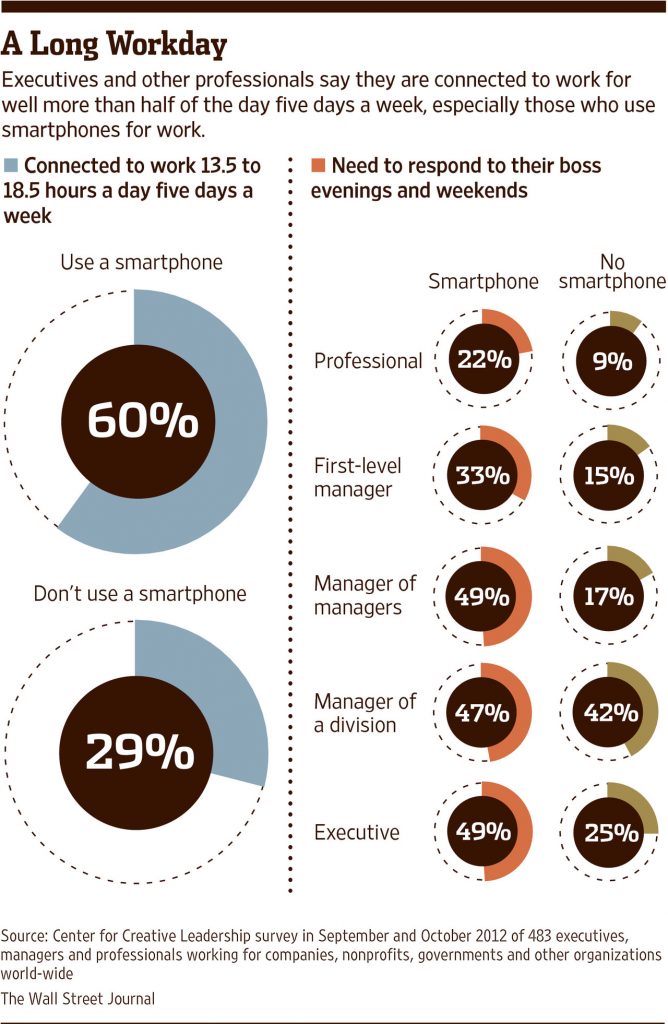Does Your Smartphone Push YOUR Buttons?
How many hours a day are you at work? Baloney!
I didn’t mean how many hours per day you spend at the office (though that’s a pretty substantial number too these days). No, what I’m asking is, how many hours a day do you find yourself linked to your job if you include being available and responsive to texts and emails from business colleagues via your smartphone?
The truth is, as this Wall Street Journal article explains, the rise of the smartphone has been both a blessing and a curse for employees. At first blush, it seems like a great idea: a quick check on something, a prompt answer, even a speedy piece of research via the Internet can keep things moving, and make everybody feel more efficient and productive.
Welcome to the Endless Workday
But the reality is that once this mindset takes over, no time is free time. Suddenly the office seems to have first call on evenings and weekends that used to be spent exclusively with a spouse and children, working on personal projects and interests or just plain relaxing. 
A continuously stressful economic climate introduces a subtle sense of fear or worry; what will the boss think if I don’t respond quickly? If he or she is having dialogue and doing business with others in the office, will I be conspicuous if I live my personal life and remain outside the loop?
You can rationalize it easily by telling yourself it’s just a quickly answered email or note to a co-worker “before you forget.” But it can take you away from precious time spent with family. It’s difficult to be fully engaged in a game or conversation (or even shared time watching a movie) if you are distracted by thoughts of the office and the need to connect with it in one way or another.
The Office Is Part of the Problem
The office itself isn’t innocent. Bosses themselves can be a big factor in creating this kind of situation. By sending after-hours messages, they create the impression that they expect an immediate response; and often the resulting “conversation” takes up a significant amount of time, and functionally extends the workday.
Once the subtle expectation that employees are “always on duty” is conveyed, project schedules seem to shift to virtually require it. Meetings consume huge chunks of each workday, and employees have little opportunity to complete their regular duties without using time outside of normal business. And many bosses – even if they pay lip service to work-life balance –have no problem with that.
Smart Solutions to Smartphone Servitude
But there is good news for employees willing to take steps to address the issue, and companies who understand the value in helping them do it. Next week, in Part 2 of this short series, I’d like to suggest some ways technology can actually help you to disconnect from the office and reconnect to your life and family.
Meanwhile, if you have some stories to tell about the increasing need to be available 24/7 for your business or ways you’ve discovered to keep that from taking control of your life, I like to hear them. Give me a call. And if the things I’ve talked about here pretty well describe your situation, hang in there – help is on the way in next Tuesday’s post.


